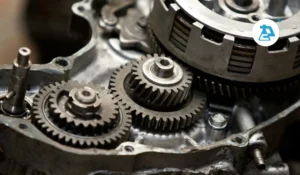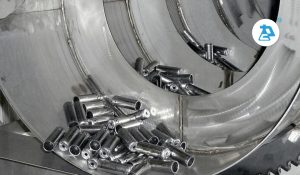Prelude:
Hydraulic systems play a critical role in various industries, powering machinery and equipment through the transmission of pressurized fluids. To ensure the efficient and reliable operation of hydraulic systems, selecting the appropriate hydraulic lubricant is essential. This blog explores key factors to consider when choosing hydraulic lubricants, focusing on viscosity, additives, and overall performance considerations.
-
Viscosity: The Foundation of Hydraulic Lubrication
Viscosity, often referred to as the most crucial property of hydraulic fluids, determines the fluid’s resistance to flow. It affects the effectiveness, responsiveness, and general performance of the hydraulic system. Understanding the working circumstances of the equipment, such as temperature and load, is necessary when choosing the appropriate viscosity grade.
- Operating Temperature: Take into account the range of temperatures that the hydraulic system can withstand. Low temperatures can lead to increased viscosity and sluggish operation while high temperatures can induce fluid thinning and impaired lubrication performance. Select a fluid whose viscosity index (VI) guarantees consistent performance at a range of temperatures.
- Equipment Load and Pressure: To maintain an adequate lubricating film thickness, heavy-duty systems with high loads require fluids with greater viscosities. Lower viscosity fluids can be used in lighter systems without sacrificing performance.
-
Additives: Enhancing Lubricant Properties
Additives are chemical components added to hydraulic fluids to enhance their performance and extend their lifespan. Different additives serve specific purposes:
- Anti-Wear Additives: These additives form a protective film on metal surfaces, preventing direct contact and reducing wear. Zinc-based additives are common and provide crucial protection against friction and abrasion.
- Anti-Oxidation Additives:Hydraulic systems are exposed to oxygen, leading to fluid oxidation and degradation. Anti-oxidation additives minimize oxidation, extending the fluid’s lifespan and maintaining its performance.
- Anti-Foam Additives: Air entrainment in hydraulic fluid can lead to foaming, reducing lubrication effectiveness and causing operational issues. Anti-foam additives prevent the formation of stable foam, ensuring consistent fluid performance.
- Corrosion and Rust Inhibitors: These additives protect system components from corrosion and rust caused by water contamination or acidic byproducts of fluid degradation.
- Viscosity Index Improvers:In multi-grade hydraulic fluids, these additives help maintain stable viscosity across varying temperatures, improving fluid efficiency.
-
Performance Considerations: Balancing Environmental Impact and Efficiency
When selecting hydraulic lubricants, performance factors other than viscosity and additives are crucial to take into account.
- Efficiency: High-quality hydraulic fluids minimize energy waste from friction, enhancing system effectiveness overall and lowering operating expenses.
- Environmental Impact: Choose fluids that comply with environmental efforts and standards to reduce your impact on the environment. Hydraulic fluids that are biodegradable and environmentally benign are available, minimizing your activities’ environmental impact.
- Compatibility with the System: Make sure the hydraulic fluid you choose is compatible with the hoses, seals, and other components in your system. Leaks and operational disruptions may result from incompatibility.
- Maintenance Intervals: Choose fluids with prolonged maintenance windows to cut down on downtime and maintenance expenses.
Conclusion
In order to choose the best hydraulic lubricant, it is important to carefully analyze the viscosity requirements, the choice of performance-enhancing additives, and the overall system efficiency and environmental impact. You can maximize the longevity and performance of your equipment by understanding the particular operating circumstances of your hydraulic system and staying up to date on innovations in lubricant technology.




